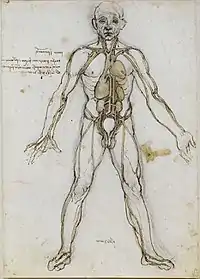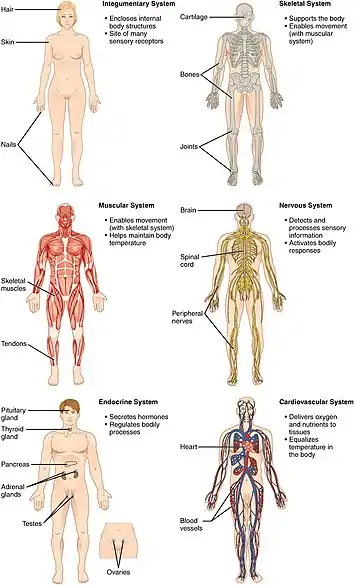List of systems of the human body
 |
| Part of a series of lists about |
| Human anatomy |
|---|
The main systems of the human body are:
- Circulatory system / Cardiovascular system:
- Digestive system and Excretory system:
- System to absorb nutrients and remove waste via the gastrointestinal tract, including the mouth, esophagus, stomach and intestines.
- Eliminates waste from the body.
- Endocrine system:
- Influences the function of the body using hormones.
- Integumentary system / Exocrine system:
- Skin, hair, nails, sweat and other exocrine glands
- Immune system and lymphatic system:
- Defends the body against pathogens that may harm the body.
- The system comprising a network of lymphatic vessels that carry a clear fluid called lymph.
- Muscular system:
- Enables the body to move using muscles.
- Nervous system:
- Renal system and Urinary system
- Reproductive system:
- The reproductive organs required for the production of offspring.
- Respiratory system:
- Brings air into and out of the lungs to absorb oxygen and remove carbon dioxide.
- Skeletal System:

- Clockwise from top left: the integumentary
- skeletal
- nervous
- cardiovascular
- endocrine and muscular systems.

- Clockwise from top left: the lymphatic
- Respiratory system
- urinary reproductive (female
- male) and digestive systems.
See also
This article is issued from Wikipedia. The text is licensed under Creative Commons - Attribution - Sharealike. Additional terms may apply for the media files.